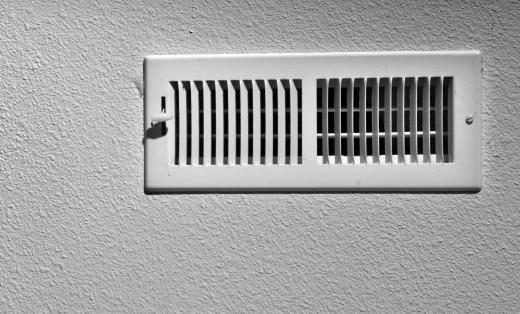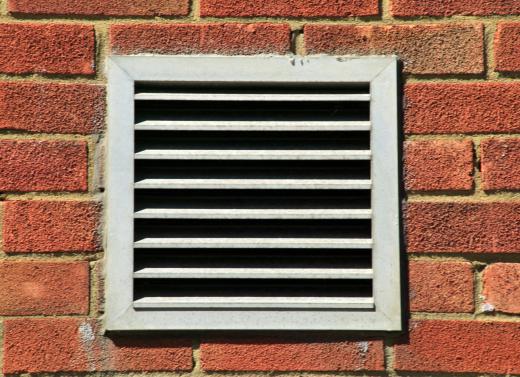Heating, ventilation, and air conditioning (HVAC) systems are essential to providing comfortable living and working environments. Some HVAC units are small and relatively simple in design, such as those found in houses and apartments. Others are huge, complex machines that heat and cool large factories, buildings, schools, and hospitals. Regular HVAC maintenance is essential to ensure that units do not break down and that they operate at maximum efficiency. People can usually perform simple HVAC maintenance tasks themselves on small units by following owner's manual guidelines, while large systems require the expertise of trained mechanics.
Residents of apartments and houses should inspect their HVAC units every few months to keep them working properly. Owner's manuals usually include simple preventive maintenance checklists with helpful instructions and diagrams. They explain the tools and techniques needed to take off covers and identify the internal parts. Turning off the power source, removing metal guards and casings, and wiping dust off everything inside can significantly improve the performance of the unit. In addition, most home HVAC units are equipped with replaceable air filters made with fiberglass, carbon fiber, or charcoal that should be changed according to owner's manual specifications.

A certified HVAC mechanic can be consulted if a homeowner is not comfortable performing maintenance or if the unit stops working properly. Professional mechanics have specialized training to repair the motorized gears, engines, electrical circuits, and fluid reserves found within HVAC systems. They can diagnose problems, replace damaged filters and parts, and test units to make sure their repairs were successful. HVAC maintenance experts can be found by conducting an Internet search of local technicians or contacting the unit manufacturer. Timely HVAC maintenance procedures are important to ensure systems continue to run strongly for many years.

The heating and cooling systems used in schools, manufacturing plants, and other large buildings are often very different than home HVAC units. Systems often feature detailed controls and gauges, boilers, pressurized pipes, and long ventilation ducts that deliver hot and cold air. HVAC maintenance on such units requires expert technical knowledge and problem solving skills. Professional technicians carefully handle and replace potentially hazardous refrigerants, cut and weld lengths of pipe, lubricate gears, and maintain huge gasoline and electrical engines. Technicians carefully inspect the quality of workmanship after completing maintenance jobs, checking for leaks and measuring the efficiency of airflow throughout the units.
